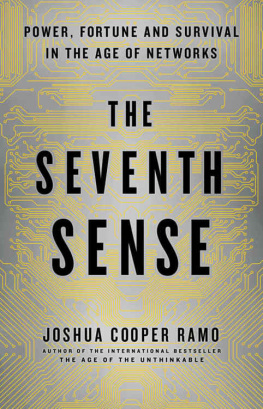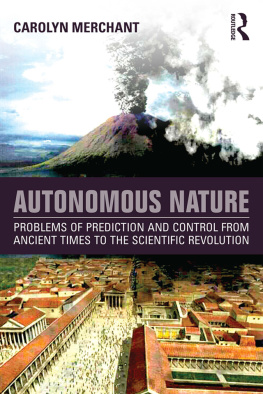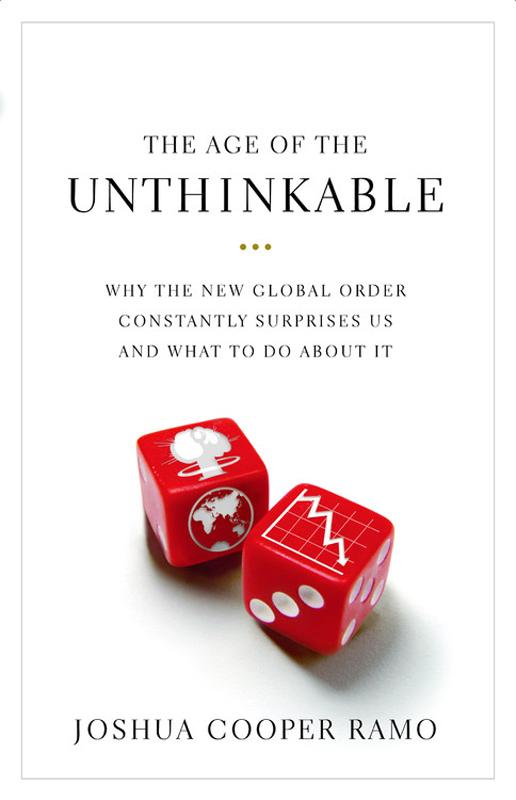Copyright 2009 by Joshua Cooper Ramo
All rights reserved. Except as permitted under the U.S. Copyright Act of 1976, no part of this publication may be reproduced, distributed, or transmitted in any form or by any means, or stored in a database or retrieval system, without the prior written permission of the publisher.
Little, Brown and Company
Hachette Book Group
237 Park Avenue, New York, NY 10017
Visit our Web site at www.HachetteBookGroup.com
First Edition: March 2009
Little, Brown and Company is a division of Hachette Book Group, Inc.
The Little, Brown name and logo are trademarks of Hachette Book Group, Inc.
ISBN: 978-0-316-07001-0
ALSO BY JOSHUA COOPER RAMO
No Visible Horizon
For my mentors
Forgive my vehemence, which has deep causes in my hope for the future. This is my subject. I know, or partly know, what I want. I know, and clearly know, what I fear.
JOHN MAYNARD KEYNES TO DEAN ACHESON,
AUGUST 1941

The Sandpile Effect
1. Split Screen
The thick coffee, in two small gilt-edged cups and with that bitter bite of near-burnt Arabic chicory, has gone cold. We are sitting more or less in silence, each of us thinking, staring idly at a muted television nearby. It is the early fall of 2008, and the headlines, even on the station we are watching Al Manar, the TV channel of Hizballah here in Lebanon are about the global financial crisis. Fouad and I have a settled peace about us at the moment, the slow calm of an early afternoon, each of us getting ready to return to our respective lives. He will, when he leaves, go back to his work as a chief of information technology for Hizballah, the guerrilla and terror group that is, as one Israeli general has said, the greatest in the world at what it does.
Fouad and I have had a long conversation about the Koran, about the demands of martyrdom, about his sense of himself as already dead, simply walking the earth doing the work he is meant to do before ascending to heaven, probably at some moment chosen in Tel Aviv. Weve talked about his children and his brothers and sisters. He has asked me questions about China, which is where I live and is a place he wants to understand better. I had come to see Fouad because, in all my dealings with Hizballah over the years, I had found myself particularly fascinated and intrigued by their capacity for creativity and innovation, even in the pursuit of shocking ends. Their obsession with finding better ways to fight and survive under the full pressure of Israeli attack seemed to me a signpost of sorts, but I had always struggled to figure out what precisely it marked. It meant, at the least, a record of defeat for the Israeli army. In 2006, for instance, fewer than 500 Hizballah fighters had frustrated a 30,000-man Israeli attack, including one of the most extensive air campaigns in Middle East history. Hizballah, to prove their point, had made a show of firing the same number of missiles on the last day of the war as they had on the first.
In trying to understand how our global order is now working and changing, I knew I needed to be intimate with the ideas Fouad carried around, no matter how repellent they might be. In a way, the passion for innovation and the geeky curiosity of fighters like Fouad reminded me of friends of mine who had started great Internet companies or people I knew who were managing gigantic hedge funds. They were mostly around my age, in their thirties and forties. And if I had encountered them first in my role as foreign editor of Time magazine, these people had remained interesting and fascinating to me once I left journalism precisely so that I could better feel how our world was changing, instead of merely observing its shifts and lurches from a reportorial distance. The instinct for change, an eager fluency with the tools of serious disruption, I had noticed, seemed particularly alive in my generation. This was the generation that had built the Web into something useful and revolutionary, that had assembled huge and unregulatable financial firms churning out billions in profits while creating trillions of dollars of risk. It was a sense you could also find in many people I knew in China as they struggled to build an economic and political order against the unpredictable demands of constant newness. Change is at the center of all of their lives. They seek it out and, when change is proceeding too slowly, accelerate it. They operate with the self-regard and courage of people who believe that the tide of history is on their side, bringing us closer to whatever dream they find most exciting, whether it is fast universal connections to data or wholly new types of government. They see this process as one in which destabilization of the existing order is not only necessary but inevitable.
You dont dare draw a moral equivalency between the crimes of Hizballah and, say, the innovations of Google, but you can see in each the workings of a powerful energy: the imbalance of 500 fighters against 30,000 soldiers or two university students remaking the whole Web from a dorm room. These hot cells of innovation draw the very best minds of a generation: quantitative-math geniuses to hedge funds, computer savants to tech startups and, well, darker corners. Our e-mail is flooded with CVs, Fouad told me. But of course some people dont have the courage to be on the terrorist watch list, even if it is to serve a sacred cause.
When I thought of these rebels I knew in the context of other friends of mine, such as the suits working in the National Security Council or the U.S. Army or IBM or Time Warner, I realized that there was no chance those conservative places could ever compete. They were locked, from top to bottom, from young to old, and in every level of their bureaucratic life, in a vision of the world that was out of date and inflexible. As a perplexed Alan Greenspan confessed to Congress about his own thinking in 2008, just a few weeks after Fouad and I watched financial news together: I have found a flaw. I dont know how significant or permanent it is. But I have been very distressed by the fact. The congressman questioning him asked, In other words, you found that your view of the world, your ideology, was not right. It was not working? Greenspan replied, Absolutely. Precisely. You know thats precisely the reason I was shocked. Because I have been going for forty years or more with very considerable evidence that it was working exceptionally well.
You probably didnt need to hear it from Greenspan to have a sense of the confused navigation of our leaders. How can the president of the United States declare a war won just as it becomes more violent? Why are Russian bombers flying off American coasts again? How did China, a country with an average daily income of $7 per person, amass nearly $2 trillion in U.S. debt in less than a decade? How is it that the secretary of the treasury of the United States, a near-billionaire financier, can say that the worst of a crisis is over in May and then find himself in August furiously battling to save the global financial system? Why is it we can agree on an immense collection of problems, such as global warming or the spread of nuclear weapons, that must be solved now and then make no real progress or only move backward?
After I left Fouad, I recalled a conversation I had had a week earlier with a friend who has a key role in the Chinese banking system. He explained to me how he had locked down his own financial institutions in 2007 to avoid just the sort of crisis now sweeping the globe. He was shocked, he said, that the United States had not seen it coming, had not acted. He had seen it, had


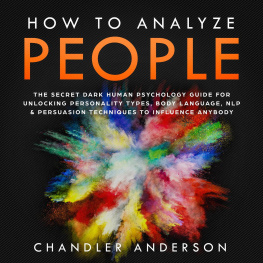
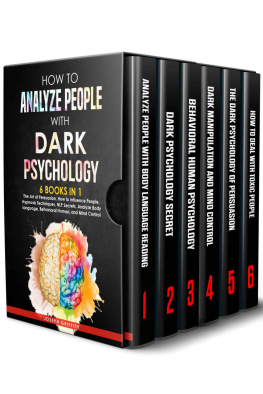
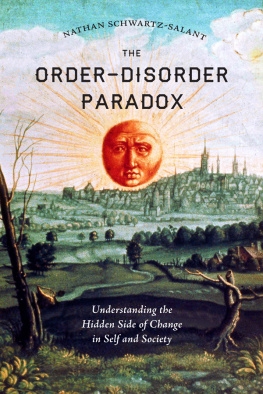
![Leron Zinatullin [Leron Zinatullin] - The Psychology of Information Security](/uploads/posts/book/124057/thumbs/leron-zinatullin-leron-zinatullin-the.jpg)

